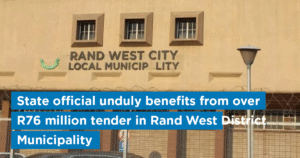According to Currin (2020), South African townships remain as they were initially conceived, that is, spatially disconnected and alienated from mainstream economic activity. Asad Alam, the World Bank Group country director for South Africa, states that addressing the spatial inequalities reflected in townships is essential to improving the lives of its people. Subsequently, the township economy is currently attracting a great deal of policy interest in South Africa, primarily as a result of the persistence of concentrated poverty, unemployment and the lack of economic transformation since democracy, which is intrinsically linked to the historical of these areas.
According to the Gauteng Township Economy Revitalisation Strategy 2014-2019, the township economy”refers to enterprises and markets based in the townships. Township entrepreneurs operate these enterprises to meet the needs within and beyond the township and therefore can be understood as township enterprisesdistinguished from those operated by entrepreneurs outside the township. Scheba and Turok (2019) further add that the township economy is a spatial concept, and is not like the ‘informal economy’, which refers to unregulated economic activities irrespective of their location.
This paper seeks to analyse the state of township economies bearing in mind both challenges and opportunities available to this sector. This is crucial because as provided by Nqapela (2017), we must realise that the township economy will not mirror the established mainstream economy due to infrastructural, spatial and network separation. It will need to develop on its own specific and particular terms. Subsequently, there is a need to develop its own specific and particular terms.
The report will therefore examine diverse policy initiatives that have been presented to develop the township economy which is characterised by a high rate of informality while providing a range of goods and services to meet the needs of communities in the township and beyond.
The State of the Township Economy
While there is a firm belief by the government that the township economy, estimated to generate R200 billion per year[1], has a vital role to play in helping to create a vibrant socially inclusive, labour-absorbing and growing economy, government efforts are yet to yield the required returns. Several studies, including one by the World Bank (2014) on the economics of South African townships show that the townships have a low rate of entrepreneurial activities in South Africa compared with other countries in Latin America, Asia and the rest of Africa.
It is reported that only 80% of all new businesses in South Africa survive past the first two years, a low rate when compared with other countries. There are numerous reasons for this phenomenon which do not bode well for township enterprises. Most businesses are brought into existence for survival with little or no understanding of costs, responsibilities, markets, funding needs and other requirements of the business such as a lack of proper financial records and systems and technology. In addition, these businesses lack the systems necessary to handle growth or deal with associated risks (EVA Financial Solutions, 2019).
The most comprehensive data on township economies has been collected by the Sustainable Livelihoods Foundation (SLF), who have surveyed almost 11,000 township enterprises across nine sites in four provinces (2016). They have found that grocery, food and liquor services comprise 54% of all township businesses, followed by local services (34%), including hair salons shops, traditional healers, mechanical/electrical repairs, recycling, churches and early childhood education (edu-care) centres.
The study further found that the minibus taxi industry additionally played a vital role, reflecting the poor location of many townships and the lack of formal public transport. In contrast, manufacturing makes up only 2% of all enterprises, and they are rarely linked to wider value chains and external markets (SLF 2016). It is worth noting that there are illegal activities such as drug dealing, counterfeit goods, contraband cigarettes and sex work that are not reflected in these statistics.
Informal retail trade is the dominant activity in townships and encompasses street traders, spaza shops and shebeens (SLF 2016). The scale of informal trade is a result of low barriers to entry and low start-up costs, as well as strong demand for convenience (daily top-up shopping). The study further provided that products that are sold are almost exclusively produced by firms based elsewhere such as maize meal, bread, milk, coffee, and peanut butter, which are all made by well-established conglomerates (CSP 2018). Subsequently, Scheba and Turok (2019) surmise that township enterprises perform more of a complementary role in enabling formal retailers and wholesalers to access a growing segment of low-income consumers who have large collective spending power.
The majority of country’s unemployed (about 60% of the total) come from townships and informal settlements. Townships, as seen above, have always been a hive for entrepreneurial activity, but the main challenge has been unlocking the potential in order to generate broader economic benefits. According to research by the World Bank Group, only 25% of money generated in the townships is spent there. This is further illustrated by showing that the township of Diepsloot has an estimated economy R2 billion, most of which is spent in the surrounding suburbs of Sandton and Fourways.
The goods and services that township enterprises provide have a vital economic and social role for the communities they serve – for example:
- Minibus taxis – in the absence of the adequate public transport system, have played and continue to play an essential role in the daily commuting of millions working class people to and from work and to and from shopping routines at affordable rates while employing more than 70,000 people in Gauteng;
- Spaza shops – This is a R7 billion sector that has historically played the role of a micro convenient grocery store providing necessities to township residents within walking distance;
- Burial Societies – In response to the need for a decent and dignified funeral, thousands of burial societies were born to provide an informal funeral insurance cover at an affordable rate – to an estimated 12.5 million members and their dependents. This economic activity is valued at R25 billion;
- Stokvels – These are traditional rotating schemes that have played a role in funding education of children and providing credit to township entrepreneurs
Challenges Inhibiting the Potential of Township Economies
Literature reverberates with the notion that most township SMMEs do not grow in size and develop like those in the formal sector. While some informal businesses in inner cities grow, those in townships mainly just survive, only make enough money to meet their ‘ ‘family’s daily needs. Challenges faced by township SMMEs, be they internal or external, have a massive impact on the survival and the sustainability of the business. Since township SMMEs operate in environments that differ from the SMMEs in the cities, challenges they experience are unique to them. The social, infrastructural and economic costs of ineffective urban planning are often under-estimated. Yet what are commonly referred to as ‘townships’ in South Africa can have highly divergent features. For example, in relation to the following:
- The quality of socio-economic infrastructure,
- Their distance from industrial and commercial areas,
- The level of income differentiation,
- The nature of the available skills set,
- Size and history,
- The extent and character of existing economic activity, and
- The nature of tenure arrangements and the scale of informal housing.
The Gauteng Township Economy Revitalisation Strategy highlights specific barriers that are more pronounced in township enterprises. These specific barriers are as follows:
- Lack of entrepreneurial and productive activity,
- Poor understanding of the abilities and value of township enterprises,
- Little hard evidence to demonstrate the impact and value-add of township enterprises,;
- Limited account is taken of the particular characteristics and needs of township enterprises within enabling and supportive environment; and
- Complexity and lack of coherence within township economy sectors combined with widely varying skills and knowledge bases.
Furthermore, the following additional barriers were identified in the strategy. These barriers include, but are not limited to:
- Access to capital – including grants and loans and financial exclusion,
- Access to markets – including the preferential procurement,
- Skills development,
- Enterprise development support – cluster support, business skills and co-op development skills, and
- The domination of economic sectors, throughout the value chains by few monopoly players.
The World Bank Group study on the Economics of South African townships found that failure to modernise the township economy would make this an era of lost opportunities, not only for the townships but also for the nation. The study further notes that with unemployment concentrated in the townships and informal settlements, the battle to reduce South Africa’s staggeringly high unemployment rate will likely be won (or lost) in these places.
A barrier that has been neglected and needs urgent attention is the framework of rules and procedures that conditions the environment within which township enterprises operate. This oversight needs to be corrected in the light of growing evidence that the regulatory framework disables rather than enables township enterprises. Inappropriate standards and onerous approval procedures currently inhibit the formalisation and expansion of many township enterprises.
It is very difficult for firms with growth aspirations and potential to do so because of bureaucratic obstacles and regulatory hurdles. While some township activities are inherently survivalist in character and benefit from being informal and below the radar screen; others are disadvantaged by a regime that discourages them from saving and reinvesting to develop and grow their operations. Many of them want to be considered legitimate and would be willing to pay taxes in return for greater security and better support services. The current situation oscillates between laissez-faire and enforcement of punitive regulations, which creates uncertainty and opportunities for abuse.
According to Scheba and Turok, townships are challenging spaces for economic development and quite different to rural areas, despite the tendency to link them together in recent policy statements. President Ramaphosa mentioned townships six times in his ANC election manifesto speech in January 2019, each time alongside rural areas. This suggests a lack of appreciation of the distinctive obstacles and opportunities facing township economies.
Many of these obstacles reinforce each other and compound the significance of any particular constraint. The result can be a vicious circle, which increases risk and discourages township enterprises from reinvesting to expand and to strengthen their capabilities over time. To illustrate, crime and xenophobia deter many spaza shops and township service providers from stocking a wider range of products or trading longer hours. Subsequently, better road layouts, street lighting, better security and the clustering of outlets and related infrastructure could alleviate some of these constraints.
Township enterprises also fail to increase their incomes by investing in developing distinctive, higher-value products and services. Instead, they are caught up in a constant struggle to survive. The lack of adaptation and innovation also limits the product variety and choice available to local consumers. As a result, townships continue to exist on the margins of neighbouring urban core economies unable to attract formal private investment into their respective townships.
Another neglected but integral aspect of the systemic barriers facing township economies is the governance regime that includes the framework of rules and procedures that influence how enterprises operate. The current regulatory framework and administrative processes are in many ways, unsupportive and inappropriate, which results in enforced informality (Charman et al. 2013). That is, people who are already vulnerable are pushed into operating in the unregulated economy without formal protections and safeguards. It also results in uneven enforcement practices by the government, creating an environment of uncertainty, ambiguity, and extra-legal social regulations, which pose higher risks and is not conducive to long-term investment to develop township enterprises.
Through examining the informal liquor retail (“shebeen”) sector, Charman et al. (2013) demonstrated that enforcement actually produces informality in this sector. Illustrated with examples from one of their sites in Delft South in Cape Town, the article describes key aspects of shebeen business practice, including the responses to greater law enforcement. The vast majority of shebeens operate without a license and almost always in violation of various municipal zoning regulations and by-laws; they are both informal and illegal enterprises. Notably, instead of closing shop or facing the hurdles of compliance, the great majority of shebeens continue to evade the law by downscaling their activities. In essence, therefore, these shebeens mean owners struggle to access credit and are vulnerable to unfair or illegal lending practices which charge excessive rates of repayment.
Some shortcomings of the current governance framework include but are not limited to:
- The stringent and inappropriate norms and standards in South Africa’s business legislation. These are based on high-income enterprises and environments and are not adapted to the distinctive needs and circumstances of township economies. Unrealistic and prohibitively costly regulatory hurdles hamper business registration and formalisation. They favour larger businesses with the economic power to negotiate exclusive access to specially zoned land and business parks in and around some of the townships.
- As a result of their limited financial capabilities, township entrepreneurs tend to rely on low-cost building materials and makeshift premises, including corrugated iron and zinc sheets, old shipping containers and rudimentary stalls. None of these complies with official building and zoning regulations, which excludes them from regularisation and access to scarce space within shopping malls and other business sites.
- Township edu-care providers are often excluded from receiving government subsidies and support for infrastructure and teaching materials because they do not comply with official building and planning regulations. An incremental approach would allow enterprises to progress towards meeting the required standard over time, rather than setting the bar so high at the outset that few can ever attain it.
- Cumbersome and costly approval procedures for compliance with many business laws and regulations imposes unrealistic costs on entrepreneurs and thus hinders formalisation and growth. Small township enterprises are disproportionally burdened by onerous administrative procedures because they do not have the dedicated capacity of larger firms to deal with the red tape. Township entrepreneurs often lack the requisite information and wherewithal to understand and deal with complex regulatory requirements. In addition, many lack the technical systems to submit documents effectively and timeously.
The World Bank study showed that almost 30% of informal enterprise owners listed permit requirements and business regulation as business constraints in Diepsloot. Charman et al. (2013) argue that hurdles related to registration and licencing are particularly important constraints on informal enterprises in the liquor sector. Yet despite the need to support such entrepreneurship, informality can also function as a poverty trap and a barrier to business survival and growth. Informal enterprises are vulnerable to crime and to police harassment. Informality limits access to credit and to insurance, and insecure land tenure limits access to capital required for growth. Without licenses, shebeens cannot become taverns and are forced to operate in the shadows; without formal registration, informal crèches cannot access the government subsidies available to Early Childhood Development Centres (Sustainable Livelihoods Foundation (SLF) 2016).
Several studies have highlighted the major challenges facing the growth and development of small, micro and informal enterprises in townships. These include a lack of available land to conduct business, inadequate services and infrastructure (water, electricity, sanitation, waste and internet), lack of connectivity and thus high transport costs, limited access to finance, inappropriate regulations, limited government support and skills development programmes, weak integration into formal value chains, lack of access to more profitable markets, negative social attitudes and strong competition from more established businesses.
Yet while pathways to formalisation are an important part of township economic growth strategies, certain current features of townships mitigate against this, with land-use management arrangements posing a particular obstacle. As a result of these land-use challenges, many enterprises are doomed to what SLF calls ‘enforced informalisation’, forever unable to access the benefits, protections and contract security that arise from formality, limiting their ability to expand into markets beyond the township or to participate in higher value chains (Cities Support Programme: National Treasury).
Although townships contain enormous buying power and offer numerous opportunities for entrepreneurship, their economies are predominantly consumer-driven and have limited production activities. Investing in townships should be seen as worthwhile, given the volume of end users within these markets, but needs to be coordinated. Aspects that need to be coordinated include recreational facilities, commercial/retails outlets, industrial developments, as well as road and rail networks.
The informal economy provides opportunities for employment and entrepreneurship. Work in township micro-enterprises offers the unemployed, particularly the youth, a point of entry into the labour market. In addition, the township economy provides opportunities to acquire skills, gain on-the-job experience and build social networks. In essence, therefore, it is clear that there are good business opportunities for those youth able to apply their knowledge and skills and to mobilise capital.
If township enterprises are to be strengthened and increase their contribution to an inclusive, labour-absorbing, and growing economy, three key outcomes from this strategy are necessary. The government needs to:
- Create the appropriate enabling environment based on strategic focus areas to revitalise the township economy,
- Establish the economic and social value of the township economy, and
- Ensure that the township economy becomes the key player in the provincial economy.
Key action points in the strategy are those that the government believes, with its limited available resources and leverage from the private sector, can most effectively impact on these outcomes.
The government’s role is to create an enabling environment in which township enterprises can flourish. Such an enabling and supportive environment will be based on the seven strategic focus areas identified in theGauteng Township Economy Revitalisation Strategy (2014-2019). These strategic focus areas are identified as follows:
- Ensuring an appropriate legal and regulatory framework,
- Promoting manufacturing and productive activities,
- Economic infrastructure support and clustered enterprise development,
- Financing and investing in the township economy,
- Ensuring access to markets,
- Entrepreneurship development, and
- Promotion of innovation and indigenous knowledge systems (Gauteng Township Economy Revitalisation Strategy, 2014-19: 19-27).
The government can achieve these in a number of ways, in particular, the government can:
- Help to ensure that township enterprises are able to increase their entrepreneurial and productive activities,
- Help to ensure township enterprises compete effectively with mainstream economy businesses by levelling the playing ‘field’ while consolidating their practices of co-operation and solidarity,
- Make sure that the specific and justified needs of township enterprises which are either formal or informal are recognised and taken into account in policymaking and programme delivery,
- Help change the ‘culture’ and show through the government’s own actions, and the promotion of others, there are ways of doing business which are socially inclusive and sustainable,
- Ensure private sector and all public sector bodies, particularly at provincial and local government spheres actively targets township enterprise goods and services when making procurement decisions,
- Make sure that township enterprises have access to appropriate finance and investments, including the creation of own financing systems, and
- Make sure that timely and appropriate enterprise development advice and support measures are widely available to township enterprises as it is to non-township business.
The government can do the above by effectively coordinating, in an integrated way, the existing support initiatives to ensure they are also directed towards the township economy. In particular, the government will prioritise its limited resources, and mobilise other partners on a clustered enterprise development approach, focusing on the sector and spatially directed support, rather than on individual and isolated initiatives. In addition, understanding the cultures, motives, networks and practices of this informal, unlicensed and unregulated economy is vital to the development, formalisation and integration of it into the formal economy, or even for the provision of basic commercial, finance and business support services to them.
In providing stimuli for township economies, policymakers have to navigate seemingly irresolvable contradictions. These contradictions stem from the fact that it would make it easier for the government to provide services if the business operators and vendors were to be clustered together creating economies of scale for the government. But the business operators might be reluctant to be grouped and clustered together given that if in the same sector and offering the same range of goods, products and services, are likely to be competitors, who would find it a disincentive to have to share spaces, support services, business intelligence, market share and the like, with their competitors.
It is equally obvious that the bulk of the businesses have already established a market of suppliers and clients and will be reluctant to lose out on them or provide a competitor with access to them. They will wish to remain within easy accessibility to an already cultivated market and to further capitalise on being located where people are concentrated and where traffic volumes are high. While the clustering and grouping approach might promote the development of business hubs and economies of scale for service provision, it ignores the most basic aspects of business practice.
Scheba and Turok (2019) further point out that an Act such as the Spatial Planning and Land-Use Management Act (SPLUMA) (No. 16 of 2013) which replaces all the previous land-use planning legislation could be effectively used to redress spatial injustice and to promote social and economic inclusion. This offers opportunities for new ideas and approaches to be introduced through municipal by-laws. To illustrate, new zoning schemes could allocate special rights to particular locations, which could regularise existing informal practices in townships. Municipalities could also use new zoning schemes to support the integration of informal enterprises in new shopping malls, public transport nodes and public spaces in more affluent areas. Yet SPLUMA has also been criticised for reinforcing a codified land-use management system and perpetuating restrictive zoning controls in townships.
Conclusion and Recommendations
Current government initiatives to support township economies are important considering their history of marginalisation. The first step on the road to improvement is to undertake a more detailed and systematic analysis of the constraints facing township enterprises. This should go beyond simply identifying laws, regulations and administrative processes that stifle growth but examine the specific aspects that are most problematic and seek to prioritise their relative importance. It is clear from the literature reviewed that government has implemented regulatory paradigms that do not recognise the peculiarities of township businesses. Furthermore, while by-laws are still overly-anchored in formalised suburban and CBD enterprises this fails to consider the current state of the township economy. Subsequently, there is a need to actively look into shifting the basis of how townships are regulated, to create a specific set of conditions which allow for a revitalised township economy.
Currently, the country finds itself stuck in a low-level, high-unemployment equilibrium that has a modestly performing formal urban sector with heavily concentrated ownership structures.
The World Bank states that breaking out of this low equilibrium mould will require a coordinated policy push along multiple dimensions to:
- strengthen the economic and institutional linkages between the township economy and urban formal/economy,
- elevate the human capital and infrastructure base of the township economy, and
- improve investment climate conditions, including access to credit in townships.
There is an additional concern that even the traditional informal economy, comprising mostly survivalist activity in the form of micro-retail trading in townships, may also be at risk, faced with growing competition from large formal retailers operating on a larger scale as well as foreign traders operating on smaller margins with stronger business networks (Financial Mail 2011).
Given the importance of townships in the country, this is a hugely neglected area that requires much more concerted policy attention. The challenges as shown above are multi-faceted, so piecemeal actions and initiatives will not suffice. Townships are also extremely diverse, so a tailored approach in each area is essential. Revitalising township economies requires a strong, capacitated state to support, in partnership with key role-players, the creation of an enabling environment in which township enterprises can grow and transform to become more productive and sustainable.
Furthermore, an incremental approach would allow enterprises to progress towards meeting the required standard over time, rather than setting the bar so high at the outset that few can ever attain it. Operating without a consistent formal governance framework creates an environment of uncertainty and informal regulation that deters investment and growth. The characteristics of townships must be understood from a number of different perspectives. This includes the demographic and socio-economic profiles of different communities within townships, as well as the type of housing that people live in.
Lastly, the ongoing COVID-19 pandemic is likely to leave an indelible impact on the country’ small and medium-sized enterprises. These businesses typically have limited cash reserves, smaller client bases, and less capacity to manage commercial pressures than do larger companies. Be that as it may, these businesses play critical role in job creation and growth, therefore protecting and enabling SMMEs during this period of economic turbulence is important not least because their survival and recovery is likely to be a useful gauge of what is yet to come for the economy as a whole.
[1] Breakfast with Bongani Bingwa, 2020. Will the Gauteng Township Economic Development Bill Fuel xenophobia? https://omny.fm/shows/the-breakfast-show-702/will-the-gauteng-township-economic-development-bil









